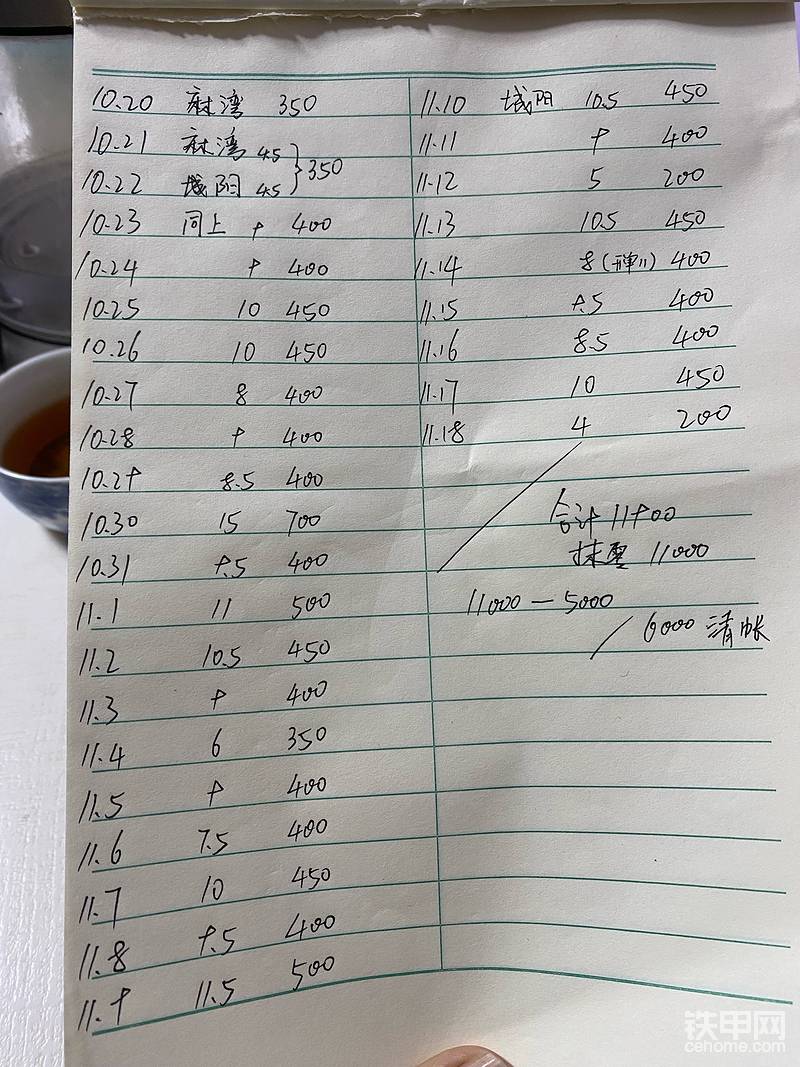A Personal Reflection from an Ordinary Excavator Operator
Life doesn’t give us endless decades — time is short, and wherever you invest your energy, whether or not it bears fruit, it always becomes part of your unique journey. Who can step into the same river twice? So, allow me to share my personal reflections over these years — a way to self-examine, to savor lessons learned, and to keep growing through trial and error.
In construction, machinery, and for us front-line workers, there’s little we can do to change the big picture. But within our own small circles, we can keep learning as we work, watching as we learn, and find calm amid an unpredictable current. If we can breathe steadily and find our own rhythm, maybe we can swim further, with a healthier body and mind.
When I was young, construction machinery was a rare sight, and most projects were small and scarce. Even basic tasks like widening and deepening irrigation ditches were done by sheer manual labor — what we used to call “ba gong” (digging by hand).
Go back even further: the Grand Canal running past my hometown was literally dug out by human hands. Imagine, with today’s know-how, building the Grand Canal would be so easy for modern Chinese people — almost effortless. From the economic boom of the 1980s to the few decades up until the pandemic, progress has been nothing short of astonishing. We all know the old phrase: “Which brand makes the best excavator?” — everyone’s heard it by now.
Just look at the rise of construction: state-owned giants, international deals, massive real estate booms — all blazing ahead like a rocket. But during the pandemic — triggered by an invisible microorganism — that rocket seemed to stall mid-flight. It didn’t exactly fall off a cliff, but if you look at the sales numbers of major machinery brands, you’ll see the trend clearly.
Where I work — here in a third- or fourth-tier city — things have changed dramatically in just a few years. Operator day rates skyrocketed to 400 yuan for an 8-hour shift, paid in cash. Even with fuel savings and fewer working hours, demand still outstripped supply. Sometimes you couldn’t even find a good operator, and mini excavators (which used to be cheap) were suddenly renting for 450 yuan per shift. This is the reality where I live and work.
These days, in my city, the going rate for a mini excavator operator is around 300–350 yuan for a day shift, while a full-day operating fee can easily reach 900 yuan — and you still have to take the job. One year, our local excavator association even organized a meeting to set the hourly rate at about 120–130 yuan, but in hindsight, that seems laughable. It’s like trying to set a house price at 10,000 yuan per square meter, but in practice you can only sell it for 7,000 or 8,000 — prices can crash overnight. Deals happen — or don’t — regardless of personal expectations. For ordinary people like us, all we can do is accept reality and keep moving forward.
Externally, we sometimes face restrictions. Internally, heated competition and lack of trust, along with weaker spending power, make things harder. I hope this downward spiral won’t continue. May every family connected to construction machinery find stability and peace in this “after the whale falls, all things thrive” moment.
I’m not being pessimistic or alarmist. Thankfully, a few buddies and I still run our mini excavators, taking shifts and earning around 10,000 yuan a month — not bad at all. Only January, December, and the rainy season are a bit slow; the rest of the year is manageable.
The most important thing is to do things the right way, to reflect on our actions from different roles and perspectives, and to take responsibility for problems when they arise. It’s not about whether the boss is good or whether you get approval. If you stay true to your conscience and keep a clear mind, whether you’re a boss, a shift operator, or any other worker on site, you’ll find work, earn trust, gain respect, and seize opportunities.
Let’s encourage each other and keep going!
